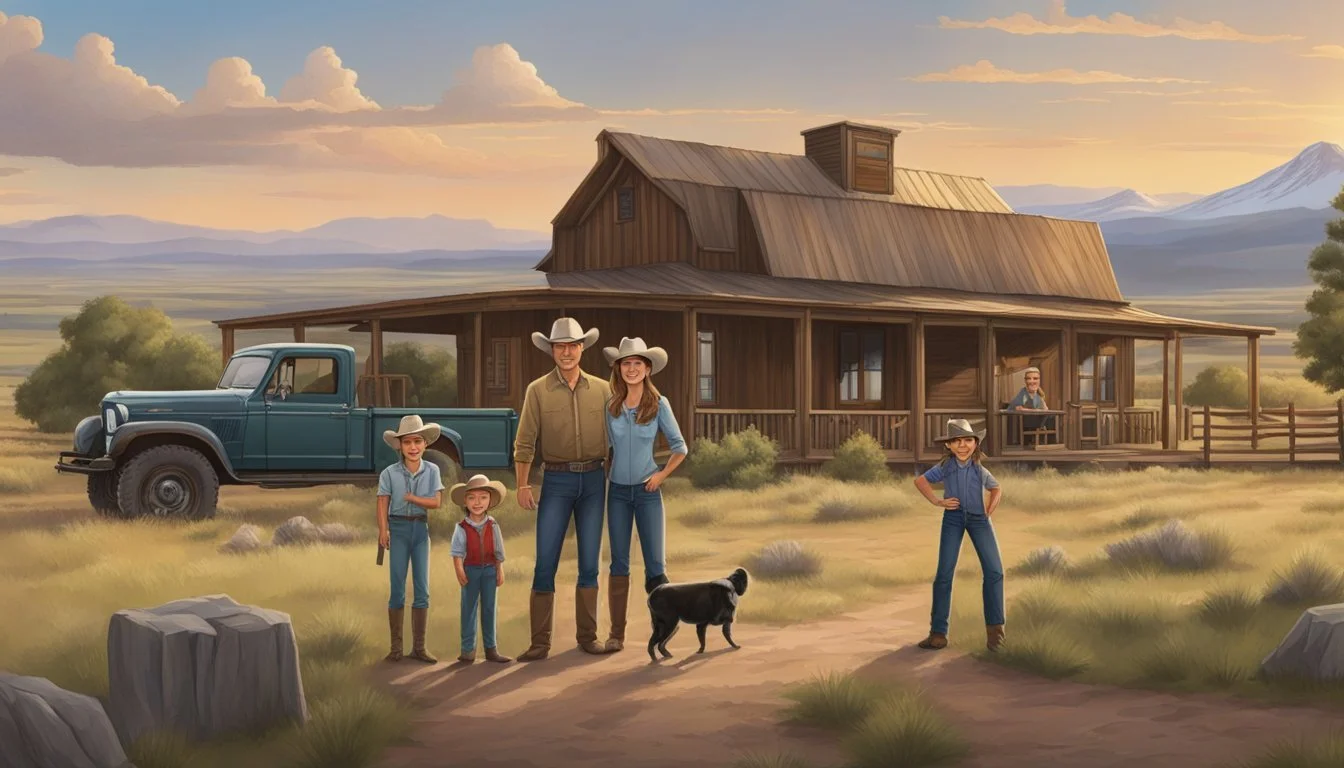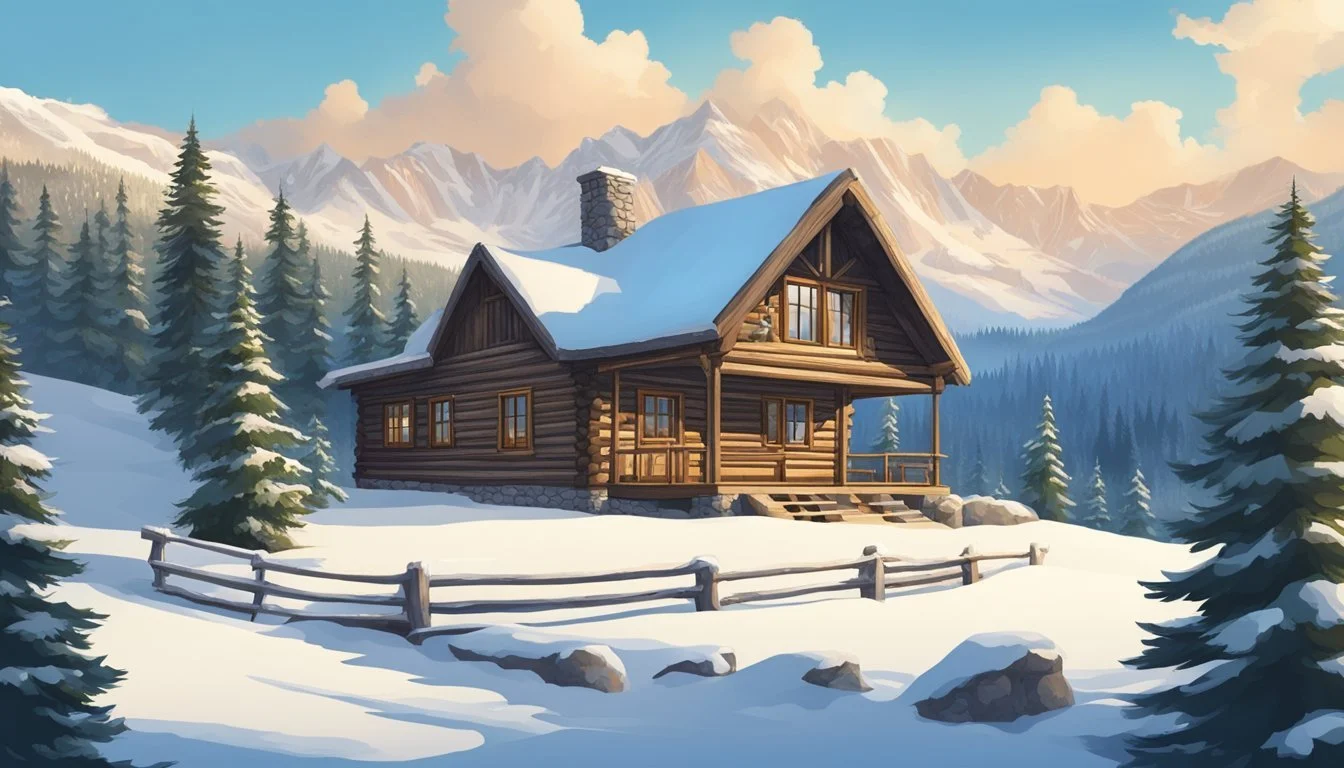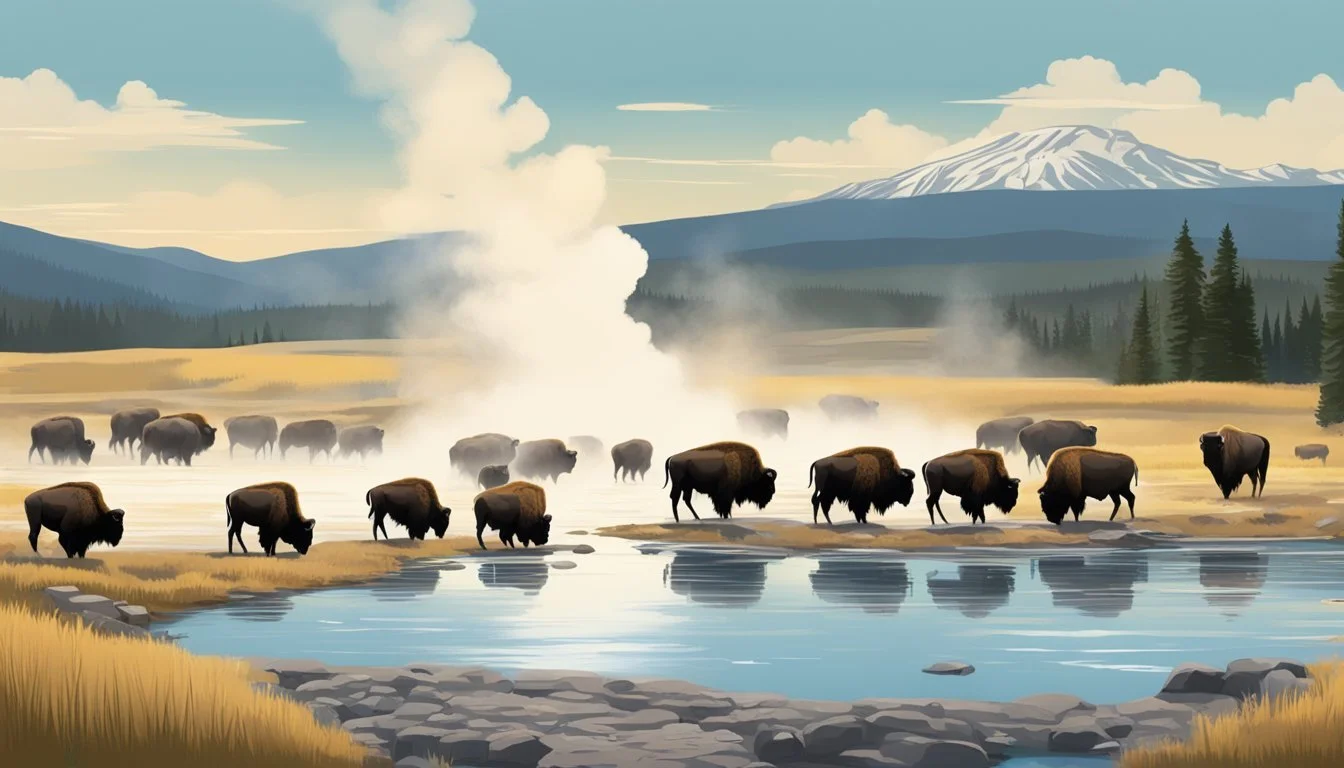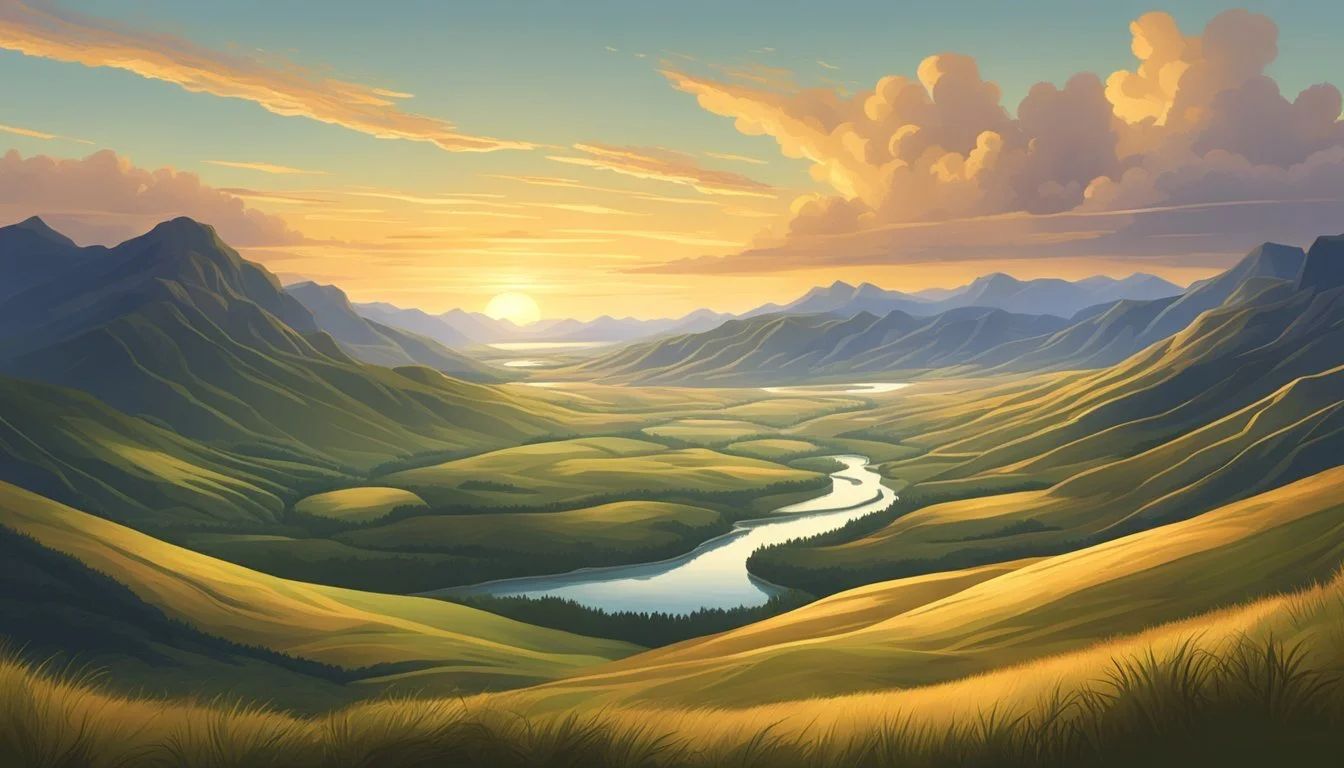Unravel the Secrets of the Duttons: Yellowstone 1883 Reveals Shocking Origins!
Yellowstone 1883 transports viewers back to the rugged American frontier, offering a captivating glimpse into the origins of the Dutton family dynasty. This gripping Western drama serves as a prequel to the popular Yellowstone series, chronicling the perilous journey of the Duttons as they traverse the untamed landscapes of the late 19th century.
Created by Taylor Sheridan, 1883 brings the harsh realities of westward expansion to life through stunning cinematography and powerful performances. The series stars Tim McGraw and Faith Hill as James and Margaret Dutton, alongside Sam Elliott as the seasoned cowboy Shea Brennan. Together, they lead a wagon train from Texas to Montana, facing numerous challenges and dangers along the way.
As a spinoff of the Yellowstone franchise, 1883 expands the Dutton family saga for both new and existing fans. The show originally aired on the Paramount Network and is now available for streaming on Paramount+, allowing viewers to immerse themselves in this gritty period drama at their convenience.
Series Overview
1883 is a Western drama miniseries that serves as a prequel to the popular show Yellowstone. The series chronicles the Dutton family's perilous journey across the American frontier in the late 19th century.
Plot and Setting
Set in 1883, the show follows James Dutton, his wife Margaret, and their children as they embark on a treacherous wagon train journey from Texas to Montana. The series vividly portrays the harsh realities of westward expansion, including encounters with Native Americans, bandits, and the unforgiving natural elements.
The Duttons face numerous challenges as they traverse the Great Plains, seeking a better life and the promise of opportunity in the untamed West. Their journey is marked by tragedy, loss, and the constant struggle for survival in a lawless land.
Relation to 'Yellowstone'
1883 provides crucial backstory to the modern-day Dutton family featured in Yellowstone. The series reveals the origins of the Yellowstone Dutton Ranch, showcasing how the family's ancestors first settled in Montana.
While 1883 can be enjoyed as a standalone story, it offers valuable context for Yellowstone fans. The show explores themes of family, legacy, and the American dream that resonate throughout the Yellowstone universe.
James Dutton, portrayed by Tim McGraw, is established as the great-grandfather of John Dutton III, the patriarch in Yellowstone.
Critical Reception
1883 garnered positive reviews from critics and audiences alike. The series was praised for its cinematography, capturing the raw beauty and dangers of the American West.
Critics commended the performances of the cast, particularly Sam Elliott as the grizzled wagon master and Isabel May as the Duttons' daughter Elsa. The show's authentic portrayal of 19th-century life and its unflinching depiction of the hardships faced by settlers were widely appreciated.
Some reviewers noted the series' slower pace compared to Yellowstone, emphasizing character development and historical detail over action-packed drama.
Characters and Cast
The prequel series 1883 features a talented ensemble bringing the Dutton family's origins to life. Key characters include the Dutton patriarch and matriarch, their headstrong daughter, and seasoned frontier guides.
James Dutton
Tim McGraw portrays James Dutton, the determined and stoic founder of the Dutton ranch. As a Civil War veteran, James leads his family on a perilous journey westward in search of a better life. McGraw's performance captures James's strength, protectiveness, and occasional moments of tenderness as he navigates the harsh realities of the American frontier.
James often clashes with his willful daughter Elsa while trying to keep his family safe. His relationship with wife Margaret forms the emotional core of their trek. McGraw brings gravitas to the role, depicting James's inner struggles and unwavering resolve.
Margaret Dutton
Faith Hill takes on the role of Margaret Dutton, James's devoted wife and a pillar of strength for the family. Margaret faces the dangers of the trail with grace and determination. Hill portrays Margaret's fierce maternal instincts and adaptability as she contends with the challenges of frontier life.
As a counterbalance to James's stoicism, Margaret provides warmth and compassion. Her bond with daughter Elsa evolves throughout their journey. Hill's nuanced performance conveys Margaret's fears, hopes, and resilience in the face of adversity.
Elsa Dutton
Isabel May stars as Elsa Dutton, James and Margaret's spirited teenage daughter. Elsa serves as the show's narrator, offering poetic insights into their westward journey. May brings Elsa's youthful exuberance and growing maturity to life as the character experiences love, loss, and self-discovery on the trail.
Elsa's coming-of-age story forms a central narrative thread. Her interactions with various characters along the way shape her worldview. May's portrayal captures Elsa's transformation from a naive girl to a hardened frontierswoman.
Shea Brennan
Sam Elliott plays Shea Brennan, a grizzled Civil War veteran leading the wagon train west. Elliott's gravitas lends weight to Shea's role as a mentor figure to the Duttons and other travelers. Shea's tragic past and world-weary demeanor belie his compassion and dedication to his charges.
As an experienced guide, Shea often butts heads with James Dutton over decisions affecting the group's safety. Elliott's performance highlights Shea's internal struggles and sense of duty as he shepherds the pioneers through numerous dangers.
Thomas
LaMonica Garrett portrays Thomas, a former slave and Pinkerton agent who serves as Shea's right-hand man. Thomas's skills and levelheadedness prove invaluable throughout the journey. Garrett brings depth to Thomas, showcasing his loyalty, wisdom, and occasional moments of levity.
Thomas develops a close bond with Shea and acts as a voice of reason within the group. His experiences as a Black man in post-Civil War America inform his perspective on their travels. Garrett's nuanced portrayal reveals Thomas's strength of character and quiet dignity.
Additional Characters
The supporting cast of 1883 adds richness to the world of the series. Audie Rick plays young John Dutton, James and Margaret's son and the future grandfather of Yellowstone's John Dutton III. Eric Nelsen portrays Ennis, a young cowboy who catches Elsa's eye.
James Landry Hébert takes on the role of Wade, another cowboy on the trail. Marc Rissmann plays Josef, a German immigrant traveling with the wagon train. These characters, along with others encountered during the journey, help flesh out the diverse tapestry of frontier life depicted in 1883.
Cultural and Historical Context
"Yellowstone 1883" unfolds against a backdrop of profound change in American society. The series captures a pivotal moment as the nation grapples with the aftermath of war and westward expansion.
Post-Civil War America
The United States emerged from the Civil War deeply scarred but poised for rapid growth. Industrialization accelerated, driving economic expansion and technological innovation. Railroads stretched across the continent, connecting distant regions and facilitating mass migration.
Veterans, like James Dutton, sought new beginnings in the West. Many carried the physical and emotional wounds of conflict. This period saw a surge in homesteading as the government encouraged settlement through the Homestead Act of 1862.
Urban centers grew rapidly, attracting immigrants and rural Americans alike. This shift created tensions between traditional agrarian values and emerging industrial society.
The Great Plains
The Great Plains presented settlers with vast, often unforgiving landscapes. Pioneers faced extreme weather, from scorching summers to harsh winters. Drought and grasshopper plagues posed constant threats to crops.
Settlers had to adapt farming techniques to the semi-arid climate. Many struggled to cultivate crops suited to the region's conditions. The Plains' ecology underwent significant changes as native grasses were replaced with crops and cattle.
Wagon trains, like the one depicted in "1883," were crucial for westward migration. These caravans provided safety in numbers but faced numerous hardships on the trail.
Native American Relations
The influx of settlers into the Great Plains led to increased conflicts with Native American tribes. U.S. government policies aimed to confine Native Americans to reservations, disrupting their traditional ways of life.
Treaties were often broken, eroding trust between Native tribes and the government. The bison, vital to many Plains tribes' cultures, were hunted to near-extinction by settlers and the U.S. military.
Some tribes resisted encroachment through armed conflict, while others sought peaceful coexistence. The series portrays these complex interactions, highlighting the cultural misunderstandings and tragic consequences of this period.
Production Details
The production of "1883" brought the Yellowstone universe to life through meticulous attention to detail and authenticity. The series showcased stunning visuals and immersive storytelling.
Filming Locations
"1883" utilized various locations across Texas as its primary filming backdrop. Weatherford, Texas served as the production base, with Bosque Ranch Headquarters playing a crucial role as the show's main on-set filming location.
The production team also ventured to other Texas locales to capture diverse landscapes. Fort Worth featured prominently in several scenes, adding historical authenticity to the series.
Some sequences were shot on location in Montana, reflecting the Dutton family's eventual destination. This mix of filming locations allowed the show to accurately portray the arduous journey westward.
Music and Score
The musical elements of "1883" played a vital role in creating the show's atmosphere. The score effectively transported viewers to the post-Civil War era, enhancing the emotional impact of key scenes.
Original compositions blended with period-appropriate music to create an authentic soundscape. The use of traditional instruments common to the time period added depth to the auditory experience.
Notable musical contributions came from the show's stars, Tim McGraw and Faith Hill, leveraging their country music backgrounds. Their performances added an extra layer of authenticity to the series' musical landscape.
Costume and Set Design
Costume design in "1883" meticulously recreated 19th-century frontier attire. The wardrobe team paid close attention to historical accuracy, sourcing period-appropriate fabrics and styles.
Characters' clothing evolved throughout the series, reflecting the harsh realities of the westward journey. This attention to detail extended to accessories, hairstyles, and makeup.
Set design was equally impressive, with historically accurate wagons, camps, and frontier towns. The production team crafted detailed interiors and exteriors that transported viewers to the 1880s.
Props and set pieces were carefully chosen to reflect the time period and the characters' circumstances. This comprehensive approach to design helped create a fully immersive viewing experience.
Notable Guest Appearances
The Yellowstone prequel "1883" featured cameo appearances from several renowned actors. These guest stars brought additional star power and intrigue to the series.
Tom Hanks
Tom Hanks made a surprise appearance in "1883" as General George Meade. His cameo occurred in a Civil War flashback scene, where he delivered a poignant speech to Union soldiers. Hanks' brief but impactful role added gravitas to the historical context of the show.
The Oscar-winning actor's participation in the series was kept under wraps until the episode aired. His appearance sparked excitement among fans and critics alike.
Billy Bob Thornton
Billy Bob Thornton guest starred in "1883" as Marshal Jim Courtright. His character appeared in the second episode of the series, bringing a stern and authoritative presence to the screen.
Thornton's portrayal of the no-nonsense lawman complemented the show's gritty depiction of frontier life. His interaction with the main characters added depth to the narrative and showcased the challenges of maintaining order in the Wild West.
The actor's performance received praise for its authenticity and intensity, fitting seamlessly into the show's atmosphere.
Themes and Analysis
Yellowstone 1883 explores profound themes through its portrayal of the Dutton family's perilous journey. The series weaves together elements of survival, violence, and westward expansion against the backdrop of the post-Civil War era.
Family and Survival
The Dutton family's struggle for survival forms the heart of Yellowstone 1883. James and Margaret Dutton fiercely protect their children, Elsa and John, as they face numerous hardships. The harsh realities of the frontier test their familial bonds.
Elsa's coming-of-age story highlights the stark contrast between youthful innocence and the brutal nature of their journey. The series portrays how each family member adapts and grows stronger through adversity.
The Duttons' determination to establish their legacy, which eventually becomes the Yellowstone Ranch, drives their perseverance. This foundational struggle shapes the family's values and outlook for generations to come.
Violence and Tragedy
Yellowstone 1883 doesn't shy away from depicting the brutal violence of the American frontier. Encounters with bandits, hostile Native American tribes, and the unforgiving wilderness result in frequent bloodshed and loss of life.
The series portrays how violence shapes the characters' worldviews and actions. James Dutton's military background influences his approach to protecting his family, often through violent means.
Tragedy strikes the Dutton family repeatedly, testing their resolve. The loss of companions along the journey and the constant threat of death underscore the precarious nature of life in the untamed West.
Manifest Destiny and Expansion
The concept of Manifest Destiny drives the westward journey in Yellowstone 1883. The Duttons, along with other settlers, embody the belief in America's right to expand across the continent.
The series explores the complex relationship between settlers and Native Americans. It portrays the displacement of indigenous peoples and the conflict arising from territorial expansion.
The characters grapple with the moral implications of their quest for land and opportunity. The promise of a new life in Montana comes at a great cost, both to themselves and to those already inhabiting the land.
Legacy and Influence
Yellowstone 1883 left an indelible mark on television and popular culture. The series reshaped perceptions of the Western genre and sparked renewed interest in America's frontier history.
Impact on Western Genre
Yellowstone 1883 reinvigorated the Western genre for modern audiences. The show's gritty realism and authentic portrayal of pioneer life set a new standard for historical dramas. It moved away from romanticized depictions of the Old West, instead focusing on the harsh realities faced by settlers.
The series' success paved the way for more nuanced Western storytelling. It inspired other productions to explore untold aspects of American frontier history. The show's attention to period-accurate details raised the bar for historical accuracy in television.
Influence on Pop Culture
Yellowstone 1883's impact extended beyond television screens. The show sparked a resurgence of interest in Western fashion and lifestyle. Viewers embraced cowboy boots, hats, and other Western-inspired clothing items.
The series also renewed public fascination with frontier history. It led to increased tourism in areas featured in the show, particularly Montana and Texas. Museums and historical sites related to the 1880s era saw a spike in visitors.
The success of 1883 led to the creation of another spinoff, 1923. This expansion of the Yellowstone universe allowed fans to further explore the Dutton family's legacy across different time periods. The interconnected narratives across these series created a rich, multi-generational saga that captivated audiences.




